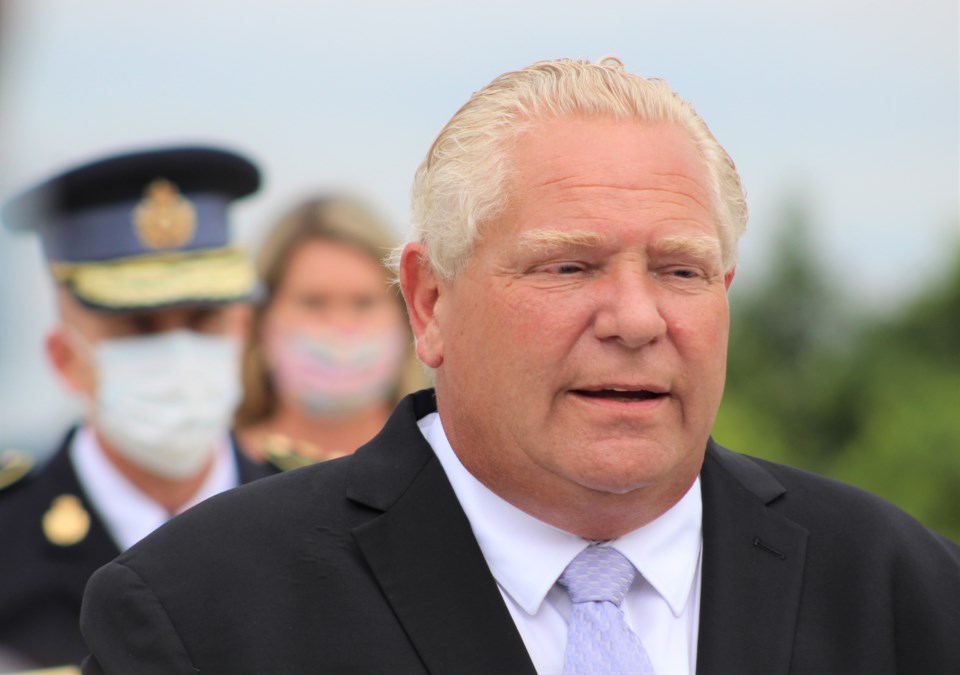OrilliaMatters welcomes letters to the editor at [email protected] or via the website. Please include your full name, daytime phone number and address (for verification of authorship, not publication).
While I am not sure about you, one thing I loathed years ago was when we went out to eat in restaurants before there was no smoking allowed — having to breathe in other people’s secondhand smoke, only to come home and find our clothes smelling like an ashtray.
I am not sure what was worse — that, or hearing all the bar owners lined up at city hall singing the blues about how they would go bankrupt if their patrons were not allowed to smoke. Meanwhile, what happened to their bottom line when the anti-smoking bylaws were passed? Nothing. The sky didn’t fall down. In fact, they may have attracted a larger proportion of customers, since the majority of people don’t smoke.
Why do I raise these memories? Because as former chair of the Simcoe and Muskoka Anti-Smoking Coalition, I can say that the Smoke-Free Ontario Act would never have passed if it wasn’t for our key partners, one of whom was the Simcoe Muskoka District Health Unit. This legislation was a critical step toward reducing the number of smokers and, by extension, cancer, emphysema, and a variety of other breathing diseases.
Ditto for the Ontario Clean Air Act. In my capacity as project lead for the Eco Health Initiative, there is no question that public health was instrumental in our fight to combat smog by launching a major public education campaign as a way to connect the dots between smog and health.
Bear in mind, the average person breathes in four litres of air, whereas those with breathing difficulties take in three-and-a-half litres. Given bad smog days reduce everyone’s breathing capacity by half a litre, coupled with the fact that going down to three litres puts a person into respiratory distress, all of a sudden you see a significant rise in hospitalizations during peak smog days.
But there is good news in so far as after Dalton McGuinty phased out coal-fired energy plants, the average number of high smog days dropped significantly from 40 days to less than a couple per year. Children with asthma are no longer required to participate in outdoor activities if there is a smog advisory warning. Positive changes happened.
While I could go on with other examples, the point is the intervention of public health along with other major stakeholders has major impacts not just in preventing premature deaths and disease, but also in cost savings to the entire system. Case in point: The Ontario Medical Association demonstrated that the costs of people needing hospitalization on peak smog days once exceeded $1 billion per year.
It only stands to reason that making a dent in the number of smog days would have a significant decline in people requiring hospitalizations and therefore costs to the everyday taxpayer. One would therefore be hard pressed to identify a government service that yields such a return in investment both in human and financial terms. Even a class of Grade 5 students was able to make that observation.
All of which begs the question: Why does public health remain the poor sister cousin within our healthcare system? And why is the government proudly spending an additional $42 billion for highways that nobody voted for, especially during a time when we are already experiencing abrupt climate change?
Bottom line: Our current healthcare system is badly broken to the point we might not have universal healthcare in a few years. Mind you, not because hospitals are mismanaged, but because of a failure of imagination and basic arithmetic skills on the part of the Ford government. I say stop the sprawl that the new highways will only serve to hasten and reinvest in adequate public health as a good starting point.
Gary Machan
Oro-Medonte



